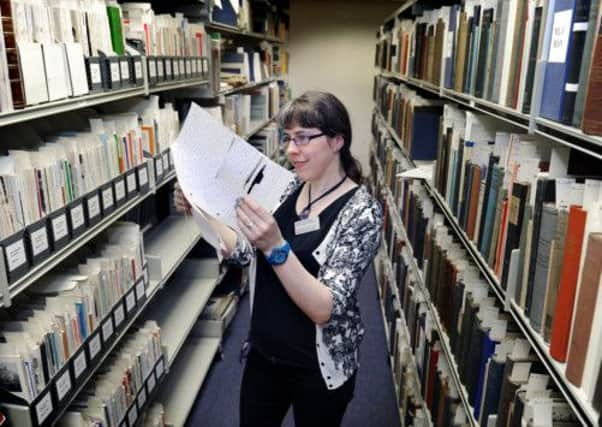Secrets, sex and retribution... the archive of a whistle blower who won’t be silenced


FOR a brief spell during the 1980s, he was the focus of global media attention and he later became one of the world’s most famous prisoners of conscience. In 1986, Mordechai Vanunu revealed details of Israel’s secret nuclear weapons programme to an astonished world via an article published by The Sunday Times.
In doing so, the nuclear expert caused a sensation and prompted an Israeli response straight from a John Le Carré novel, when he was lured to Italy from London by a femme fatale with Mossad and kidnapped during a classic honey-trap operation.
Advertisement
Hide AdAdvertisement
Hide AdNow, some 17 years on from such seismic political events, Bradford University is home to a new archive which documents an international campaign to free a man who became famous as the “nuclear whistle-blower”.
Vanunu’s story is extraordinary. After being drugged in Italy by Mossad and transported to Israel to face a secret trial, he was found guilty of treason and spent 18 years in prison; 11 of those years were in solitary confinement.
The sentence handed down by an Israeli court in 1988 – viewed by many critics as draconian – provoked outrage from anti-nuclear supporters across the world who began campaigning to win Vanunu’s freedom. One of the most vocal and enduring groups was the Campaign to Free Vanunu and for a Nuclear Free Middle East (CFV), formed in London.
Bradford University’s new archive documents the role of CFV which was officially started in 1991 by Vanunu’s brother, Meir. CFV attracted support from many famous people including writer Harold Pinter, musicians Peter Gabriel and Dave Gilmour, and actors Julie Christie, Susannah York and Prunella Scales. Active campaigners with CFV during the early 1990s included Ernest Rodker, Rami Heilbronn, Jenny Shubow, David Polden, Ossi Ron and Sabby Segal. It was Rodker who presented Bradford University with the Vanunu collection.
Advertisement
Hide AdAdvertisement
Hide AdHe explains: “I know Mike Randle from Bradford University’s Peace Studies Department so it seemed an appropriate place to house the collection which documents a major campaign. There are photographs, press cuttings, communications with The Sunday Times, communications with MPs and the Israeli Embassy, and the minutes of many of our meetings. I still have letters Mordechai sent from Israel while he was in solitary confinement. It sometimes took six months for them to arrive in the UK, and then six months for him to receive our reply.”
The archive at Bradford University covers the period 1987-2005, although most of the material relates to the early period of CFV. Bradford University describes its latest acquisition as being “rich in detail” adding: “It shows how political, media and celebrity networks were used by campaigners during the 1990s, and is of interest not only for the study of nuclear issues but for social and cultural history.”
CFV was backed by – among others – Amnesty International – and although it never succeeded in its ultimate aim of securing Vanunu’s early release from jail, there were some uplifting moments for Rodker and his colleagues. In 1992, for example, supporters held a 24-hour vigil outside the Israeli Embassy in London to mark Vanunu’s 2000th day in solitary confinement. Demonstrators included violinist Nigel Kennedy and actor Timothy West, and a 30ft banner which read – “Vanunu – 2,000 days in Solidarity” – was displayed, alongside a wooden replica of Vanunu’s cell. But despite the high profile backing CFV received and years of international political pressure on Israel, Vanunu served the full sentence and remained imprisoned until April 21, 2004.
On the day of his release, he gave a press conference and accused Israel’s security services of trying to drive him insane by keeping him in solitary confinement. Flashing the V-sign for victory, he added: “You didn’t succeed to break me, you didn’t succeed to make me crazy.”
Advertisement
Hide AdAdvertisement
Hide AdIt was